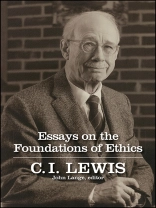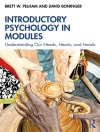2018 CHOICE Outstanding Academic Title
C. I. Lewis, one of America’s greatest philosophers, was tremendously influential in the fields of logic and epistemology. However, it was to ethics that he devoted the last years of his life. His approach to ethics was not merely as an academic pursuit, but as the deepest and most fundamental challenge of human life, older than philosophy itself: how should one respond to the necessity of action, and cope with the imposed, unforgiving imperatives of self-governance? Drawing from volumes of Lewis’s hand-inscribed notes and drafts, John Lange has assembled a version of Lewis’s final book,
Essays on the Foundations of Ethics, bringing to light his desire to locate and articulate those moral realities which he found to be part of an enlightened common sense, a common sense to be expected in an evolved, self-governing, rational human nature.
表中的内容
Acknowledgments
Editor’s Preface
Editor’s Introduction
Preface—and Confession
Essay 1. Introduction: About Philosophy in General and Ethics in Particular
Essay 2. The Good and Bad in Experience: Prolegomena
Essay 3. The Good and Bad in Experience
Essay 4. Semantics of the Imperative
Essay 5. Ethics and the Logical
Essay 6. Deliberate Acts
Essay 7. Right Acts and Good Acts
Essay 8. Right Doing and the Right to Do
Essay 9. We Approach the Normative Finalities
Appendix
关于作者
John Lange is Professor of Philosophy at Queens College, City University of New York, and the author of several books, including
Philosophy and the Challenge of the Future and
The Cognitivity Paradox: An Inquiry Concerning the Claims of Philosophy.












